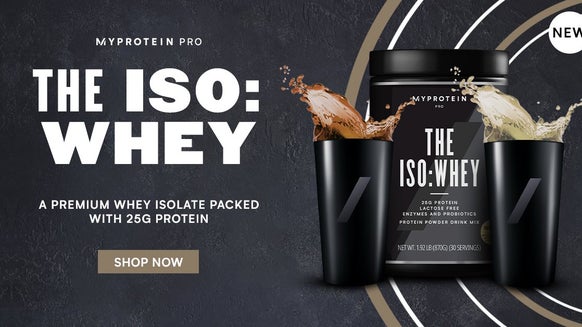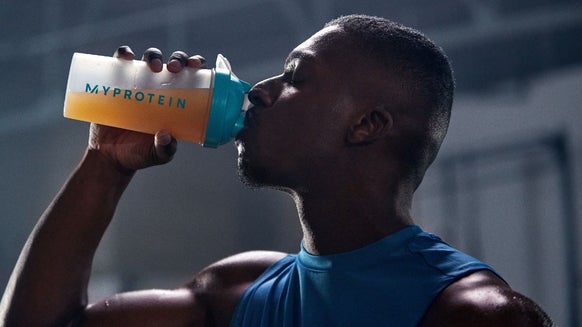Do Testosterone Boosters Really Work? | 5 Most Popular Testosterone Boosting Supplements


Testosterone is a potent anabolic (muscle building) hormone and, taken in large enough doses, can transform your physique. Packing on muscle whilst at the same time stripping fat is the holy grail for most lifters. Throw in the benefit of a boost in libido and you start to see why some people would want to boost their testosterone. So, do testosterone boosters work and what should you use?
In this article, you'll find:
What are testosterone boosters?
Do you need to boost your testosterone?
The 5 most popular testosterone boosters
Do testosterone boosters work?
Side effects
What are testosterone boosters?
Testosterone boosters are supplements believed to help boost your body’s testosterone levels. They are often natural compounds such as herbal extracts and have been used in ancient medicine.1 Examples of these are tribulus terrestris and Ginseng (Eurycoma longifolia Jack).
There are also more traditional supplements that, due to their wide range of holistic benefits, may help to maintain testosterone production. Examples of these are vitamin D and ZMA.

Do you need to boost your testosterone?
Testosterone elevation has been shown to enhance muscle mass, improve strength and reduce body fat.2 The higher the testosterone levels, the more pronounced these effects become.3
In healthy men, with testosterone levels in a ‘normal’ range, the evidence for increasing testosterone that still falls within this ‘normal’ scope is currently unclear.4
However, there are a number of factors that can effect production and cause your testosterone to fall below what is considered ‘normal’.
In this instance, there are encouraging findings that some supplements may help to revive testosterone to a normal level.1
This may be pertinent for aging men as testosterone naturally decreases as you age.5 Testosterone peaks around 30 years old and you lose 1-2% of testosterone annually from that point.5
Additionally, overtraining6, periods of chronic stress7, sleep deprivation,8 extreme weight loss (especially if following a low fat diet)9 and long term illness10 can all potentially lower testosterone.
Signs that your testosterone may be low are a lack of improvement or loss of strength and muscle mass, increased body fat, lack of vitality, lack of libido and a drop in mood.2
In such instances, it is advisable to seek medical advice. However, it may be possible to raise low levels of testosterone with certain supplements.
Five of the most popular testosterone boosters
1. D-Aspartic Acid
D-Aspartic acid (DAA) is an amino acid found in reproductive tissues and plays a role in hormone regulation.11
Your body’s testosterone is regulated by the hypothalamic-pituitary-gonadal axis (HPG), a network by which your body’s neural and reproductive systems communicate.12 Increasing the amount of DAA at key sites such as the hypothalamus, pituitary gland and testes has been shown enhance testosterone production.11
In a study where men with low testosterone and no training experience supplemented 3g of DAA for 12 days, testosterone levels were increased by 42%.11
However, in men with normal testosterone levels, with two years of training experience, d-aspartic has shown no increase in muscle gain or strength.13
In fact, in those with training experience, demonstrated by a body weight bench press, d-aspartic has actually shown negative effects. When taking a 6g a day dose, the neural adaptations required to increase were strength were blunted.13
Summary
D-aspartic acid may have a potential if you have no training experience or have low testosterone levels. In which case, 3g a day would be an appropriate dosage. However, if have been training for a while, d-aspartic acid is probably not a great supplement choice as it has been shown to have a potential debilitative effect on strength gain.
2. Tribulus Terrestris
Tribulus terrestris (TT) has been a popular testosterone booster for some time. TT is a herbal extract which has been used in ancient Greek, Chinese and Indian medicine. The claims of its potential to increase libido may go some way to explaining its popularity.14
The way TT is believed it enhance testosterone is by increasing the activity of androgen receptors (a protein which binds to testosterone), in the brain. This then causes the brain to release more luteinising hormone (LH). In turn, LH will stimulate more production of testosterone in the testes and therefore raise serum testosterone levels.14
That’s the theory at least. However, most of the evidence which may be encouraging for the use of TT have been performed in animal studies such as rats and primates. Even then, the data is somewhat inconclusive.14
In clinical trials performed on humans, there’s very little evidence so far to suggest that TT will enhance testosterone in any meaningful way.14
3. Ginseng (Eurycoma longifolia Jack)
Ginseng has a number of different names depending on the region (Malaysian Ginseng, Tongkat ali and Tung Saw) and is a popular medicinal plant.15
The way in which it can potentially increase your testosterone levels is by increasing the rate at which free testosterone is released from its binding hormone, sex-hormone-binding-globulin.15
In a study performed in aging males with low testosterone, 200mg of Ginseng each day for one month helped to restore low testosterone levels back to normal.15
There’s also evidence to show that Ginseng can improve your stress hormone profile — for example, the relationship between cortisol and testosterone.16 Essentially, cortisol, which is your body’s stress hormone, is reduced and testosterone is increased. These effects were found in a study investigating the effect of 200mg of Ginseng on stress and mood in moderately stressed men and women. Interestingly, the study also showed that Ginseng reduced tension, confusion, and anger.
Supplementing with Ginseng may therefore help to reduce the risk of your testosterone dropping due to psychological stress.
Summary
Ginseng is a popular medicinal plant that could potentially increase testosterone levels in aging males with low testosterone levels. It could also be involved in lowering levels of stress hormone cortisol and has been known to reduce stress, confusion and anger in both men and women.
4. Vitamin D
Vitamin D provides a wide range of benefits to the body as it’s considered a necessity to normal bodily functions rather than just a supplement for testosterone levels. Vitamin D plays a role in muscle function, maintaining bone health, and reducing the risk of infection by boosting your immunity.17
Due to vitamin D-forming enzymes being found in the testes, it’s been suggested that vitamin D may play a role in the production of male reproductive hormones such as testosterone.18
Evidence has been found that, in overweight males trying to lose weight over a 12-month period, long-term supplementation of vitamin D helped to increase testosterone levels.19
However, subsequent studies are yet to support this and the evidence that vitamin D enhances testosterone levels in healthy men is pretty weak.20
That being said, a potential way in which vitamin D may help to maintain testosterone is by reducing the risk of infection. Periods of illness have been shown to decrease testosterone levels9 and evidence shows that a daily intake of 1000IU (International Units are used as measurements for fat soluble vitamins such as D, E and K) of vitamin D can improve immunity.21
Although a small amount of vitamin D is found in the diet, the majority of our vitamin D comes from exposure to sunlight.21 Living in the UK, even in summer months, our intake of vitamin D may be limited.21 This means supplementing with vitamin D may well be worthwhile regardless of its effect on testosterone production.
5. ZMA
ZMA is made up of zinc monomethionine aspartate, magnesium aspartate and vitamin B6. Due to low levels of zinc and magnesium resulting in a drop in your body’s testosterone production, the theory is that supplementing ZMA may help to boost your testosterone levels.22
Zinc and magnesium are also lost in sweat, so if you train regularly at a high intensity, you may be suffering from low levels of zinc and magnesium and potentially a subsequent drop in testosterone production.23
The evidence for this, however, remains inclusive. The only study to show that ZMA increases testosterone levels was performed in young, college level, American football players.24 They found that 8 weeks of ZMA supplementation during pre-season increased free and total testosterone. However, further studies have not supported this.22
A less direct way in which ZMA may help with testosterone is through the impact it can have on your sleep. Zinc, a component of ZMA, has been shown to potentially improve the duration and quality of sleep due to its role in the central nervous system.25
This may be important, as a lack of sleep can reduce your testosterone.8 A study looking at comparison between 8 hours and 5 hours of sleep showed that 5 hours sleep a night reduced testosterone levels by 10-15%.8
Supplementing ZMA may therefore increase your testosterone levels if you suffer from a lack of sleep.

Do Testosterone Boosters Work?
Despite the alluring appeal of a herbal extract being the miracle cure for fast-track gains, there’s little evidence to show that any testosterone-boosting supplements have much of an impact.
A much more potent way to enhance your testosterone is to follow a healthy diet, get plenty of good quality sleep, and consistently perform resistance training for a long period of time.
Side Effects Testosterone Boosters
Despite testosterone boosters having little impact on your testosterone, excessive amounts can still be dangerous. There have been numerous cases of kidney and liver injury and abdominal pain.26
Take Home Message
So, do testosterone boosters work? Although they're unlikely to transform your physique if you have healthy levels of testosterone, there may be certain circumstances where supplementing testosterone can help to maintain production and even restore low levels back up to a normal range.
Testosterone boosters and other holistic supplements may help to improve your stress levels so this could be particularly beneficial at times when stress levels are high.
Ingesting extreme doses of testosterone boosters can be dangerous and there are reports of excessive amounts causing kidney and liver injury.
The best way to increase your testosterone is by regular long term resistance training combined with a healthy diet and a good night’s sleep.

Liam is a certified sport nutritionist with the International Society of Sport Nutrition and is enrolled on the British Dietetics Association’s Sport and Exercise Nutrition register. He has a Bachelor’s of Science in Sport and Exercise Science and is graduate of the ISSN Diploma in Applied Sport and Exercise Nutrition.
Liam is an experienced personal trainer, helping clients reach their health and fitness goals with practical, evidence informed exercise and nutrition advice.
In his spare time Liam has competed in numerous powerlifting competitions and enjoys hill walking, football and expanding his recipe repertoire in the kitchen. Find out more about Liam's experience here.
1. Gunnels, T. and Bloomer, R. (2014). Increasing Circulating Testosterone: Impact of Herbal Dietary Supplements.Journal of Plant Biochemistry & Physiology, 2(2).
2. Tyagi V., Scordo M., Yoon R. S., Liporace F. A., Greene L. W. Revisiting the role of testosterone: are we missing something?Revista de Urología. 2017;19(1):16–24.
3. Bhasin, S., Woodhouse, L., Casaburi, R., Singh, A., Bhasin, D., Berman, N., Chen, X., Yarasheski, K., Magliano, L., Dzekov, C., Dzekov, J., Bross, R., Phillips, J., Sinha-Hikim, I., Shen, R. and Storer, T. (2001). Testosterone dose-response relationships in healthy young men.American Journal of Physiology-Endocrinology and Metabolism, 281(6), pp.E1172-E1181.
4. Melville, G., Siegler, J. and Marshall, P. (2015). Three and six grams supplementation of d-aspartic acid in resistance trained men. Journal of the International Society of Sports Nutrition, 12(1).
5. Araujo AB, Wittert GA: Endocrinology of the aging male. Best Pract Res Clin Endocrinol Metab 2011, 25(2):303–19.
6. Cadegiani, F. and Kater, C. (2017). Hormonal aspects of overtraining syndrome: a systematic review.BMC Sports Science, Medicine and Rehabilitation, 9(1).
7. BERNTON, E., HOOVER, D., GALLOWAY, R. and POPP, K. (2006). Adaptation to Chronic Stress in Military Trainees.Annals of the New York Academy of Sciences, 774(1), pp.217-231.
8. Leproult, R. (2011). Effect of 1 Week of Sleep Restriction on Testosterone Levels in Young Healthy Men.JAMA, 305(21), p.2173
9. Luppa, P., Munker, R., Nagel, D., Weber, M. and Engelhardt, D. (1991). Serum androgens in intensive-care patients: correlations with clinical findings.Clinical Endocrinology, 34(4), pp.305-310.
10. Topo, E., Soricelli, A., D’Aniello, A., Ronsini, S. and D’Aniello, G. (2009). The role and molecular mechanism of D-aspartic acid in the release and synthesis of LH and testosterone in humans and rats.Reproductive Biology and Endocrinology, 7(1), p.120
11. Melville, G., Siegler, J. and Marshall, P. (2017). The effects of d-aspartic acid supplementation in resistance-trained men over a three month training period: A randomised controlled trial. PLOS ONE, 12(8), p.e0182630.
12. Kaprara, A. and Huhtaniemi, I. (2018). The hypothalamus-pituitary-gonad axis: Tales of mice and men.Metabolism, 86, pp.3-17.
13. Qureshi, A., Naughton, D. and Petroczi, A. (2014). A Systematic Review on the Herbal ExtractTribulus terrestrisand the Roots of its Putative Aphrodisiac and Performance Enhancing Effect.Journal of Dietary Supplements, 11(1), pp.64-79.
14. Tambi MI, Imran MK, Henkel RR: Standardised water-soluble extract of Eurycoma longifolia, Tongkat ali, as testosterone booster for managing men with late-onset hypogonadism. Andrologia. 2012, 44(Suppl 1):226–30.
15. Talbott, S., Talbott, J., George, A. and Pugh, M. (2013). Effect of Tongkat Ali on stress hormones and psychological mood state in moderately stressed subjects.Journal of the International Society of Sports Nutrition, 10(1).
16. Owens, D., Allison, R. and Close, G. (2018). Vitamin D and the Athlete: Current Perspectives and New Challenges.Sports Medicine, 48(S1), pp.3-16.
17. Blomberg Jensen, M. (2012). Vitamin D metabolism, sex hormones, and male reproductive function.REPRODUCTION, 144(5), p.647.
18. Seftel, A. (2011). Re: Effect of Vitamin D Supplementation on Testosterone Levels in Men.Journal of Urology, 186(1), pp.239-240.
19. Lerchbaum, E., Pilz, S., Trummer, C., Schwetz, V., Pachernegg, O., Heijboer, A. and Obermayer-Pietsch, B. (2017). Vitamin D and Testosterone in Healthy Men: A Randomized Controlled Trial.The Journal of Clinical Endocrinology & Metabolism, 102(11), pp.4292-4302
20. He CS, Aw Yong XH, Walsh NP, et al. Is there an optimal vitamin D status for immunity in athletes and military personnel? Exerc Immunol Rev. 2016;22:42–64.
21. Wilborn, C., Kerksick, C., Campbell, B., Taylor, L., Marcello, B., Rasmussen, C., Greenwood, M., Almada, A. and Kreider, R. (2004). Effects of Zinc Magnesium Aspartate (ZMA) Supplementation on Training Adaptations and Markers of Anabolism and Catabolism. Journal of the International Society of Sports Nutrition, 1(2
22. Cordova A, Navas FJ: Effect of training on zinc metabolism: changes in serum and sweat zinc concentrations in sportsmen. Ann Nutr Metab. 1998, 42: 274–282. 10.1159/000012744.
23. Brilla LR, Conte V: Effects of a novel zinc-magnesium formulation on hormones and strength. J Exerc Physiol Online. 2000, 3: 26–36
24. Dietary Zinc Acts as a Sleep Modulator. (2017).International Journal of Molecular Sciences, 18(11), p.2334.
25. Abdulrahman A. Case report effect of testosterone boosters on body functions: Case report. Int J Heal Sciences 2018; 12:83-87.








